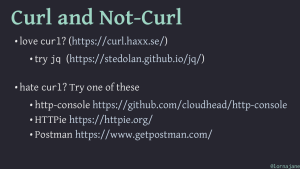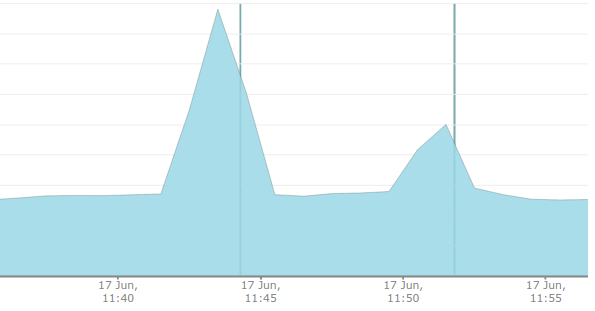Tag Archives: tools
Selective prose linting with Vale’s glob switch
I ran into one challenge though where I didn’t want to enable Vale for everything: a large internal documentation repo. This is the catch-all of things we should share with one another and like most internal company documentation sites, there is a lot going on. I assembled a very minimal set of Vale rules and still the first pass netted me over 10k errors. Luckily, Vale has a --glob option, but it took me a while to find how to exclude multiple files and directories using it, so here’s the example for future-me, and anyone else who needs to see it! Continue reading
Planets and Webhooks: a simple Flask app
GET endpoints to return JSON data, and another endpoint to receive and log incoming webhook data. Continue reading Handy Beanstalkd Admin Console
[apt install beanstalkd] -easy to install. I have also been using a handy web interface for beanstalkd which I like so much that I felt I ought to share! It’s beanstalk-console, which is a PHP-based web interface to one (or many) beanstalkd servers. Continue reading Test Web Requests with a Local RequestBin
docker-compose configuration. Continue reading HTTP Tools Roundup
Notify New Relic of Jenkins Deploys
Scaling and Sizing with PDFJam
pdfjam --suffix converted --papersize '{1920px,1080px}' --scale 0.4 --trim "-6cm -1cm 13cm 8cm" slides.pdf
The --suffix is instead of giving an output filename, whatever you feed in ends up with the suffix in its filename. This is very handy because I use this command in a script and only need to pass in one variable. The --papersize isn’t a switch I have used before either but you can set exact sizes for the final output which is nice. The --trim switch can also be used to set --clip=true to remove the trimmed space from the document if desired.
I find PDFJam a very handy tool but with not nearly enough blog posts and code snippets around, so I’m dropping my command for future reference (yours as well as mine!).
Gollum the Git-Enabled Wiki
– must handle words and documents
– should be available locally, bonus points for revision history
– must publish to the web, and ideally be editable there
– should accept content in markdown
– must have access control (which wiped out my original plan of using a static site generator)
While I worked on this, we were using the wiki feature in GitLab … which pretty much hit the nail on the head. Further investigation showed that the wiki feature in GitLab (and indeed in GitHub) is a ruby gem called Gollum. Continue reading
Set Up Your First Hubot
Continue reading


